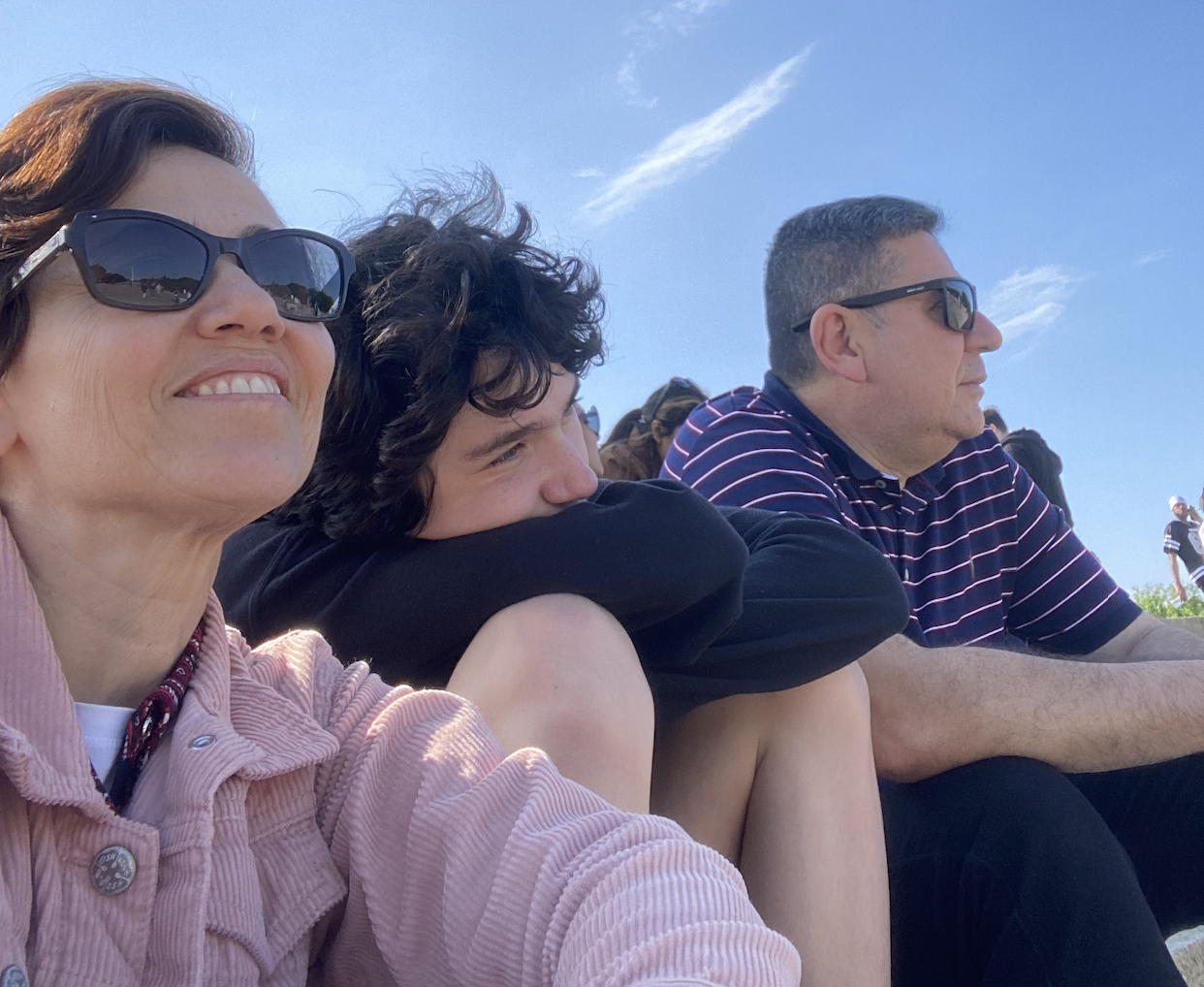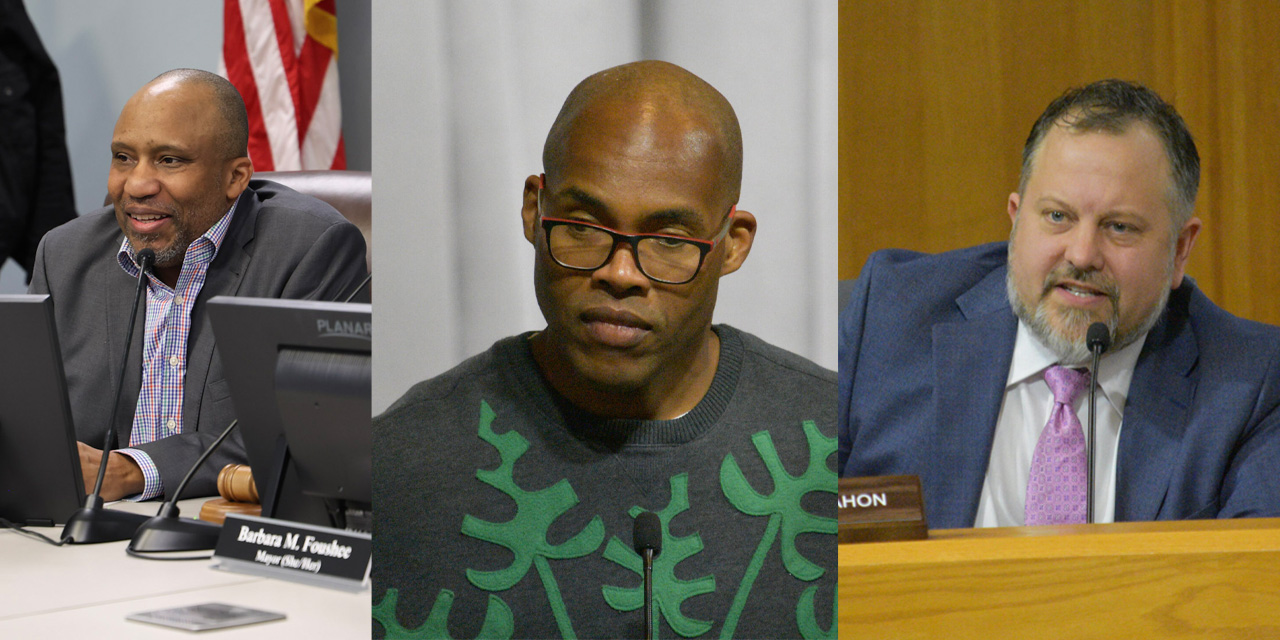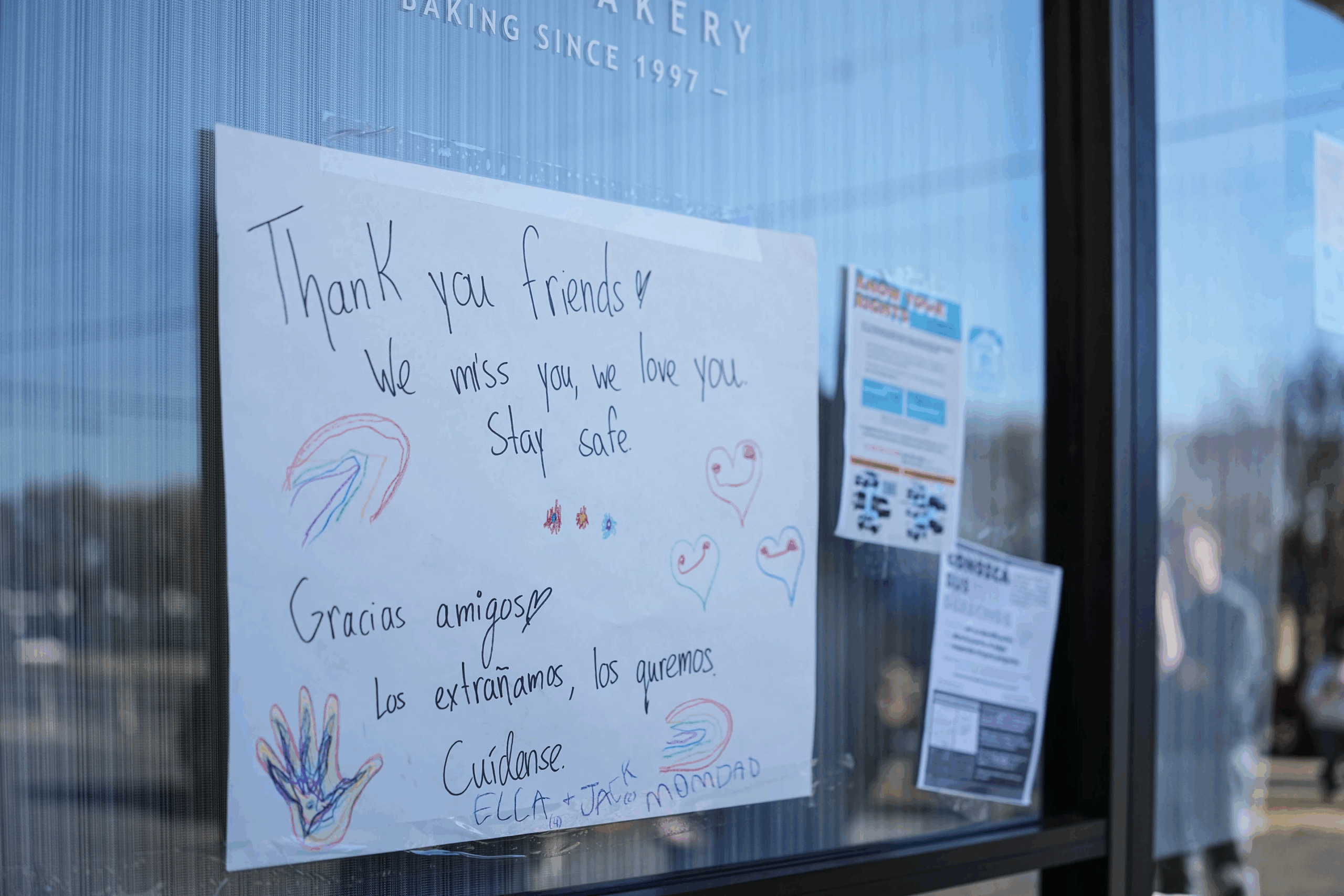When her native Venezuela was no longer safe, Heelen Pena fled to the United States. As a member of an opposition political party, she and her family faced constant hostility, including threats to her life. So, she was granted Temporary Protected Status (TPS) and received asylum in America, settling in Durham along with her mother, husband, and then-8-year-old son. She described this drastic transition as an extremely emotional period for herself and her family.

The Pena-Camacho family. (Photo courtesy of Heelen Pena)
“When I came to the United States, I came with a lot of drive but with a broken heart,” she said in Spanish. “And I saw my son’s broken heart. The first year was very difficult.”
Five years later, the family is again facing the threat of being uprooted as Secretary of Homeland Security Kristi Noem is terminating the TPS designation for Venezuela. The family now faces an uncertain future as they anxiously await their interviews to determine their asylum status.

President Donald Trump holds up a signed executive order in the Oval Office of the White House, Monday, Feb. 3, 2025, in Washington. (AP Photo/Evan Vucci)
The elimination of TPS status for Venezuelans is just one of a spate of efforts by the administration of President Donald Trump to initiate mass deportations, which was one of his most heavily advertised campaign promises. Although immigrants have been among the most frequent targets of Trump’s rhetoric since his first presidential campaign in 2016, there are key differences this time, said Carrboro Town Council member Eliazar Posada.
Posada, who became the first openly LGBTQ+ Latino elected to office in North Carolina when he won his council seat in 2022, said that while Trump’s first term in office was characterized by chaos and disorganization, a version of Trump who spent years preparing for a return to power is much more dangerous.
“It is very obvious, at least to me, that we’re dealing with a much different, much more prepared Trump organization than we did before,” he said. “They’ve worked out some of the kinks as to how to run different pieces of the government, and then in some cases, how to run them into the ground.”

Carrboro Town Council Member Eliazar Posada. (Photo via INDYWeek)
Posada, who is a son of Mexican immigrants, spoke of the severe chilling effect of the administration’s actions on people who are suddenly living in fear.
“Many folks are no longer going to their doctor’s appointments, or are fearful of going out to work, or have been looking at ways of limiting their liability when it comes to interfacing with law enforcement,” he said. “Those are examples of where people are now figuring out and navigating whether or not they can continue with their everyday lives.”
He said the Town of Carrboro will remain committed to helping its people no matter what happens at the federal level.
“Our local government’s gonna be working every day to continue to provide the services the community needs,” he said. “Beyond anything that might be coming down the pipeline of the federal government, Carrboro’s still working for the community, even if the president is not.”
Lee Roberts, chancellor of UNC-Chapel Hill, said he sympathizes with students who may be affected by Trump’s actions, but while he believes international students are an important presence on campus and he wants them to feel welcome, the school must, as a public institution, comply with any unit of law enforcement, including the Immigration and Customs Enforcement (ICE).
“It’s not a stretch to say that we are an agency of the government of the State of North Carolina. That’s just a matter of fact, and so I think that places a responsibility on us to work with law enforcement and work within the law,” he told 97.9 The Hill in January. “It doesn’t matter whether it’s ICE or the DEA or the Town of Chapel Hill or the Orange County Sheriff’s Department; we’re a public school, and we cooperate with law enforcement.”
Kelly Morales, co-director of the grassroots Hispanic activist group Siembra NC, is urging people to join organizations and actively resist what she sees as a right-wing movement to invisiblize and dehumanize her community. Siembra operates in eight counties in central North Carolina, including Orange.
“There are all these different ways in our communities that we can be plugging in, and right now is the time where we don’t want to just sit this out. We want to actually be on the right side of history,” she said. “We want to make sure that we’re not just going to let fear win, but instead that we’re going to be building towards a way to actually build power together and a way to actually be able to defend each other during these times.”
Morales also noted it’s not just her own community that faces threats, and emphasized the crucial importance of working together with other groups to support one another through difficult times.
“Right now that’s our community, the immigrant community and Latine community,” she said. “But we’re certainly in partnerships where we’re talking about how this is impacting the trans community, how this is impacting poor and working communities, how this is impacting Black community members. And so I think we are building a community defense, knowing that one day it’s also going to be other communities.”
With the elimination of the TPS designation for Venezuelans, retaining asylum status is now the best, and possibly only, chance for Pena and her family to be allowed to stay in the United States. But despite the urgency, Pena said she still hasn’t gotten a clear answer as to when the interviews will happen. And even when they do, she and her family will likely have to wait months or even a year afterward before knowing if their asylum status will get approved. Meanwhile, following Noem’s decision last month, their TPS designation will be terminated on April 7, which will leave the family’s status in a precarious limbo.
“Now, when they get rid of TPS, we only have the asylum process. But our asylum process is still in the air,” she said. “There hasn’t been a concrete response about when we’ll have an interview.”
On top of that, there’s the danger their asylum status doesn’t even get approved, upon which they would face an immediate threat of deportation. It’s a possibility Pena shudders to even think about.
“I’m at risk of deportation. That word is really hard for me,” she said. “I want to be here, so thinking about that other thing that I don’t want, I don’t even want to think about that. No, I feel God with me, and I feel that he protects me, so no, I don’t want to think about that.”
Chapelboro.com does not charge subscription fees, and you can directly support our efforts in local journalism here. Want more of what you see on Chapelboro? Let us bring free local news and community information to you by signing up for our newsletter.











